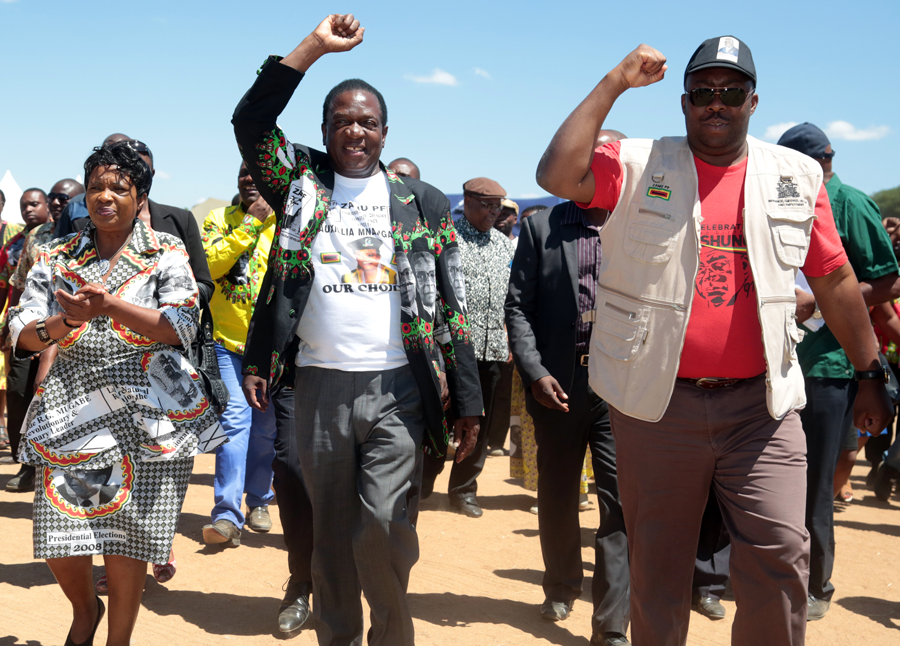African Union Election Observation Mission to the March 28 2015 presidential and National Assemby elections in Nigeria
Press Statement – Abuja, March 29
AU commends the people of Nigeria for peaceful elections and calls for calm as they await the final outcome
The 28 March 2015 Presidential and National Assembly elections in the Federal Republic of Nigeria constituted an important opportunity for deepening democracy in the country. The African Union Election Observation Mission (AUEOM) deployed 84 long and short term observers in the Federal Capital Territory and 20 of the 36 States of Nigeria.
The AUEOM assessed the 28 March 2015 elections in Nigeria in conformity with the 2007 African Charter on Democracy, Elections and Governance; the 2002 AU/OAU Declaration on Principles Governing Democratic Elections in Africa; the 2002 AU Guidelines for Elections Observation and Monitoring Missions; and the legal framework governing the conduct of elections in Nigeria. This statement presents the Mission’s preliminary findings up until the closing and counting processes on 28 March, 2015. A final report will be released upon the conclusion of the electoral process.
The people of Nigeria demonstrated patience and resolve to have a peaceful democratic process in spite of uncertainties that characterised the 2015 elections. These included security concerns, postponement of the initial date of 14 February by six weeks, and introduction of Permanent Voter Cards.
The AUEOM observed the polling process in 319 polling units of which 69% were in urban and 31% rural areas. The two-step polling process comprising accreditation and voting was found to be a challenge as voters had to wait for long in order to eventually cast their vote.
In the polling units visited by AU observers, only 23% opened on time. Out of the 77% of polling units that opened late, 57% opened beyond an hour due late arrival of polling personnel and election material. There were long queues of voters waiting patiently to be accredited, thus manifesting the resolve to exercise their franchise.
The AUEOM witnessed only 42% of cases in which the PVCs and fingerprints of voters were verified and authenticated. However, INEC provided for measures to ensure that voters whose PVCs were verified but the fingerprints not authenticated were still accredited, thereby guaranteeing their enfranchisement. The AUEOM noted that polling was extended to 29 March 2015 in 350 polling units where the accreditation was not possible due to malfunctioning of the Smart Card Readers.
The polling process was generally peaceful during the accreditation as well as voting and counting processes, despite isolated incidence of violence reported in Bayelsa and Enugu. The AUEOM commends the security agencies for their professional conduct in upholding a peaceful atmosphere throughout the Election Day.
The polling personnel in most polling units observed managed the polling operations in a professional manner, amidst operational challenges such as failure of the Smart Card Readers. Whilst they adhered to election procedures, there were certain instances where they did not follow the procedures. For instance, in some polling units observed, the polling personnel recorded names on plain papers rather than duly recognised incident forms for voters who were not authenticated by the Smart Card Readers.
In exercising the right to choose their leaders, the AUEOM commends women for participation in the polling process in various capacities. In all polling units visited, 38.9% of polling personnel and of 39.5% citizen observers were women. However, the AUEOM noted that only 18% of party agents of polling units visited were women, thus manifesting limited consideration for their representation.
The accreditation, voting and counting processes were generally transparent and took place in the presence of international and citizen observers as well as political party agents. The location of polling units in open spaces naturally subjected the process to open scrutiny by voters throughout the day. The AUEOM, however, noted that not all political parties and citizen observers were represented in all polling units visited, thereby diminishing their ability to effectively observe the polling process.
The AUEOM makes the following recommendations in order to improve future electoral processes in Nigeria. The Mission encourages the Government of the Federal Republic of Nigeria to sustain efforts to ensure that electoral security is guaranteed at all times. It also recommends that INEC considers: reviewing the Election Day procedures to make them less tedious; providing ample time for testing of technology to adequately prepare for unforeseeable technical challenges during polling; undertaking measures to reinforce training of polling personnel; and improving on the overall planning and implementation of electoral operations. The Parliament is also encouraged accord attention to the pending legal reforms in order to improve the legal framework governing elections in Nigeria. Finally, Political Parties are also encouraged to undertake measures to enhance the participation of women in the electoral process as well as improve on monitoring of the electoral process
The AUEOM presents its preliminary conclusions, taking into consideration the fact that polling is still ongoing in some polling units, which experienced some challenges that necessitated their extension,. The AUEOM commends Nigerians for their commitment to upholding democracy as demonstrated by their patience and civil conduct despite the postponement of the elections. Amidst political and security challenges, the AUEOM commends INEC for measures undertaken to enhance the integrity and credibility of the electoral process. Equally commendable are the efforts made by the presidential candidates, who demonstrated leadership by committing themselves to peaceful elections.
Thus far, the AUEOM concludes that the elections have been conducted in a peaceful atmosphere within the framework that satisfactorily meets the continental and regional principles of democratic elections. The AUEOM encourages all parties to resort to legally established channels, should there be a dispute on the outcome of the process. The AU long-term observers will continue to observe the post-electoral process.
His Excellency Prof. Amos Sawyer,
Head of the African Union Election Observation Mission








Comments